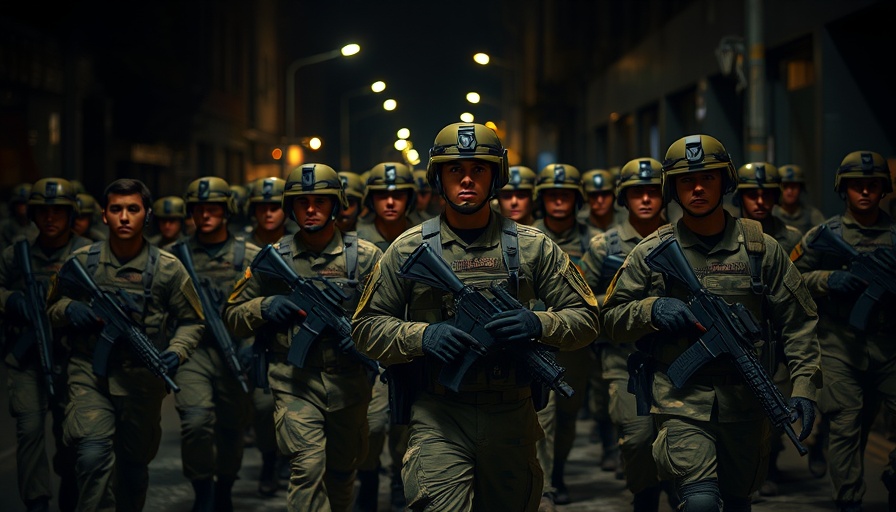
The Debate Over National Guard Intervention in Milwaukee
In a recent public discourse, Vice President JD Vance addressed the sensitive topic of potentially deploying National Guard troops to Milwaukee amid rising crime rates. The stakes are high as he underscored a pressing public safety issue affecting residents in the city, particularly in neighborhoods troubled by violence.
In 'VP JD Vance Asked Point Blank If Trump Admin Is Considering Sending National Guard To Milwaukee', the discussion dives into the pressing issue of crime and federal intervention, exploring key insights that sparked deeper analysis on our end.
Understanding Milwaukee's Crime Crisis
According to Vance, violent crime in Milwaukee, like in many urban areas across the nation, is concentrated among a small percentage of individuals. He emphasized that a mere few hundred people are responsible for a significant majority of the city's violent incidents. This poses an intriguing challenge for law enforcement and policy makers, who must devise strategies to target and address this concentrated threat without disrupting the overall community cohesion.
Community Sentiments and Leadership Reactions
On the ground, responses from local leadership reflect a mix of apprehension and defiance. Milwaukee's mayor has firmly said 'no' to any federal intervention, emphasizing the importance of local governance and community trust. This brings forth an essential discussion: should federal leadership, when faced with local resistance, respect the current administration’s decision or push for change through dialogue and support?
National Security Implications and Local Perspectives
Vance stated that the administration is willing to help but insists on collaboration with local leaders. This highlights a broader discussion about national security, civic responsibility, and how federal resources are allocated. This situation illustrates a fundamental tension: while federal support may offer additional safety measures, relying too heavily on out-of-state forces could undermine local autonomy.
Historical Context of Federal Involvement in Local Crises
Historically, deployments of the National Guard in urban areas have been contentious. From the civil rights protests in the 1960s to the more recent unrest in cities across America, the impact of federal troops faces scrutiny. Understanding this context is vital for Milwaukee residents, as they assess what involvement could mean for their community's identity and cohesion.
Possible Outcomes of Federal Aid Requests
If Milwaukee's leadership were to reconsider, the implications could be profound. Not only could it bring about a decrease in crime rates, but it could also foster a renewed sense of security within neighborhoods filled with uncertainty. Nevertheless, it is crucial that any such plans align with the community's needs and wishes to avoid further alienation.
What Can Residents Expect Moving Forward?
Residents should prepare for a continued debate about safety and the best methods of tackling crime. An active citizenry will be essential to influence how local narratives develop around federal involvement. Local dialogues throughout the community could yield innovative solutions that prioritize both safety and local governance.
Community Action and Personal Responsibility
This ongoing discussion on public safety provokes self-reflection for Milwaukeeans. Ultimately, local engagement, involvement in community programs, and advocacy for additional resources can empower residents to shape their safety narratives positively. Whether this means lobbying for federal resources or implementing local programs, the path forward lies in community solidarity.
Conclusion: The Importance of Engaging in The Debate
As residents of Milwaukee navigate the complexities of public safety, dialogue will be crucial. Whether it involves the National Guard or local solutions, your voice matters in the ever-evolving discourse about law enforcement and community safety. Engaging in these discussions—whether at town halls, community groups, or social platforms—can make a difference in how each individual perceives safety in their neighborhood.
If you care about the safety and future of your community, it’s time to get involved. Reach out, share your thoughts, and participate in civic activities that help shape your neighborhood's destiny.
 Add Element
Add Element  Add Row
Add Row 



Write A Comment